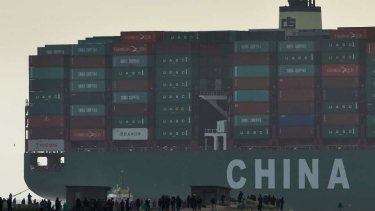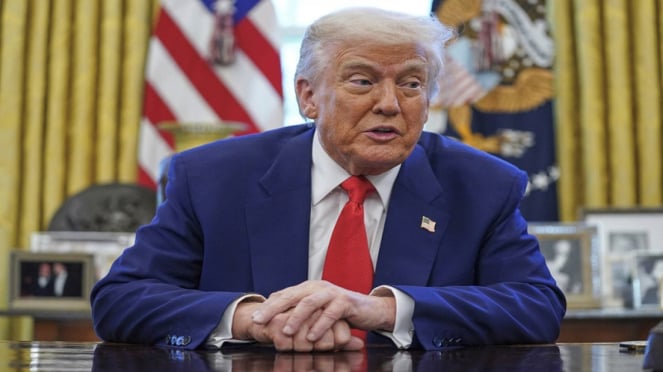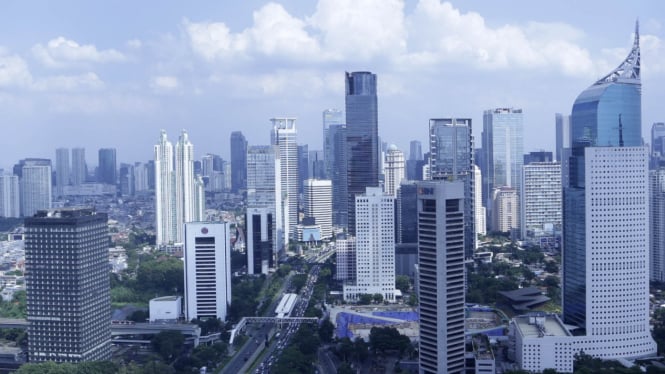Indonesia Must Brace for Foreign Product Surge Amid Global Trade War
Jakarta, VIVA – The trade war initiated by U.S. President Donald Trump is expected to have ripple effects across various countries, including Indonesia.
However, not many have clearly explained whether the impact on Indonesia will be direct or indirect, or what the real implications could be.
Wijayanto Samirin, an economist at Paramadina University, stated that Indonesia will feel the effects of Trump’s trade war, although not necessarily in a direct manner.
"Indonesia will be affected, mainly through indirect channels such as trade diversion and the growing potential for investment relocation," Samirin said on Friday (Apr 11).
He elaborated that trade diversion refers to a condition where many countries begin targeting Indonesia as a key market for their products.
“If not anticipated properly, this could disrupt domestic producers,” he warned.
In addition, as global risk increases, it could lead to a fly to quality behavior among investors—moving their capital from high-risk countries to safer markets.
Presiden AS Donald Trump usai menandatangani perintah eksekutif, Rabu, 9/4
- AP Photo
In this context, Indonesia is still perceived as relatively high-risk.
“These two factors will pose bigger challenges for Indonesia, including fiscal pressures, currency volatility, deindustrialization, and job creation issues,” he explained.
When asked whether this situation might further open the door for Chinese products to flood the Indonesian market—especially considering how dominant China’s electronics and automotive goods have become—Samirin admitted that it’s a strong possibility.
However, he rejected the notion that this would lead to greater dependence on Chinese goods.
Instead, he argued that it signifies a strengthening of trade relations between Indonesia and China, rather than dependence.
“What’s actually happening is a deeper economic interlink. This is a neutral and normal development—it cannot be simply interpreted as dependency,” Samirin concluded.























